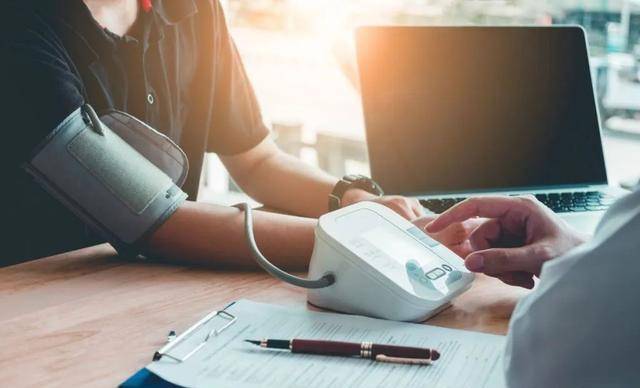Hypertension is a global chronic health issue that causes insidious and slow damage to important organs such as the heart, brain, and kidneys. Apart from regular medication and a healthy lifestyle, dietary adjustments are also important means of controlling hypertension.
Among various foods, researchers have found that consuming two fruits regularly may reduce the risk of death from hypertension, namely apples and bananas.
#MayDay to recharge knowledge# Regularly eat these 2 fruits
To reduce the risk of death from hypertension
In 2024, researchers from the Second Affiliated Hospital of Dalian Medical University and other institutions published an important study in the journal “Frontiers in Nutrition.”
This study, based on 2480 hypertensive patients from the U.S. National Health and Nutrition Examination Survey (NHANES) database, conducted a 10-year follow-up study to explore the relationship between different fruit consumption frequencies and the overall mortality risk of hypertensive patients.
The study involved various fruits such as apples, pears, bananas, pineapples, and grapes, categorized according to consumption frequency.
The results showed that compared to hypertensive patients who rarely consumed apples, those who ate apples 3-6 times a week had a 40% lower overall mortality risk.
Similarly, compared to patients who rarely ate bananas, those who ate bananas 3-6 times a week had a 24% lower overall mortality risk.
More notably, when bananas and apples were consumed together at a frequency of 3-6 times a week, it was associated with a 43% reduction in overall mortality risk.
However, this study only revealed the association between consuming more bananas and apples and reducing the overall mortality risk of hypertensive patients, without proving a causal relationship between the two.
Benefits of Eating Bananas and Apples Regularly
For hypertensive patients
Bananas:
Bananas are a food rich in potassium and low in sodium, which is essential for hypertensive patients. Potassium helps balance sodium levels in the body, promotes the excretion of salt, thereby helping to lower blood pressure.
In addition, bananas are rich in dietary fiber, vitamin C, B6, and various antioxidants, all of which are beneficial for cardiovascular health.
Apples:
Apples are rich in dietary fiber, especially pectin, which promotes intestinal health, helps lower levels of bad cholesterol (LDL) in the blood.
Apples also contain high amounts of antioxidants such as vitamin C and E, as well as flavonoids, which help reduce cardiovascular inflammation and protect heart health.
Improving Hypertension Starting from These 5 Things
1. Healthy Diet:
Adopt a diet pattern low in salt, low in fat, and high in fiber. Increase the intake of vegetables and fruits, reduce processed foods and fast food, choose whole grains instead of refined grains, limit alcohol and high cholesterol foods.
2. Moderate Exercise:
Regular physical activity helps lower blood pressure. Engage in at least 150 minutes of moderate-intensity aerobic exercise per week, such as brisk walking, swimming, or cycling, and two days of muscle-strengthening activities.
3. Weight Management:
Being overweight or obese is a significant risk factor for hypertension. Strive to achieve and maintain a healthy weight through a healthy diet and regular exercise.
4. Smoking Cessation and Limiting Alcohol Intake:
Nicotine in tobacco causes blood vessels to constrict, leading to high blood pressure. Excessive alcohol consumption can also raise blood pressure, increasing the risks of heart disease and stroke. Therefore, hypertensive patients should quit smoking and limit alcohol consumption.
5. Stress Management:
Long-term stress can lead to high blood pressure. Learn relaxation techniques such as deep breathing, meditation, yoga, or progressive muscle relaxation to cope with daily life stress.
In addition, hypertensive patients should monitor blood pressure regularly, follow medical advice, take antihypertensive medications, and maintain communication with the healthcare team to ensure the effectiveness of the treatment plan.


